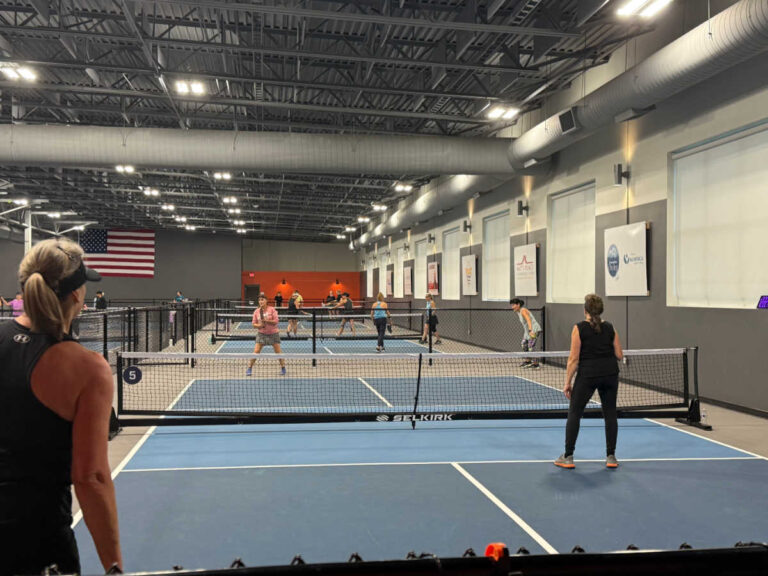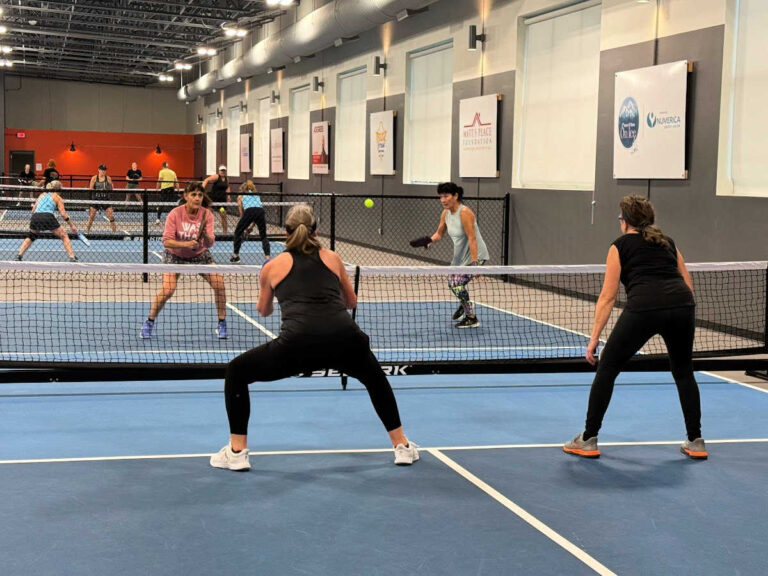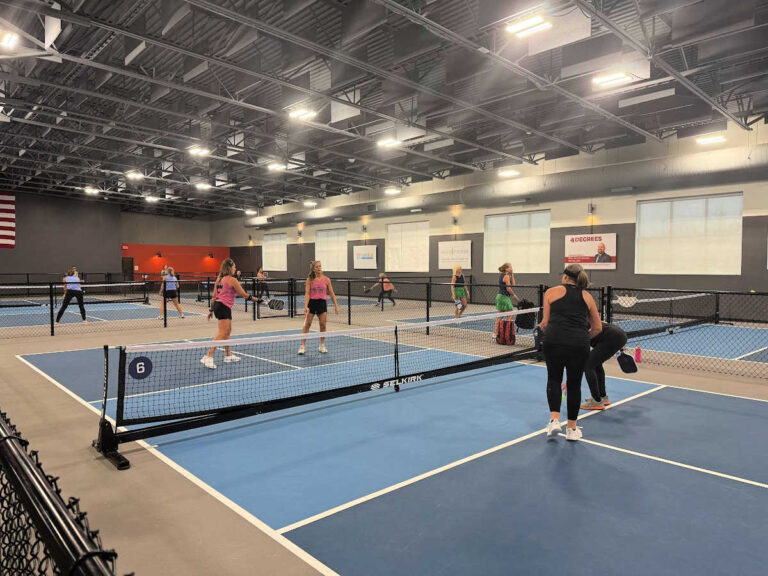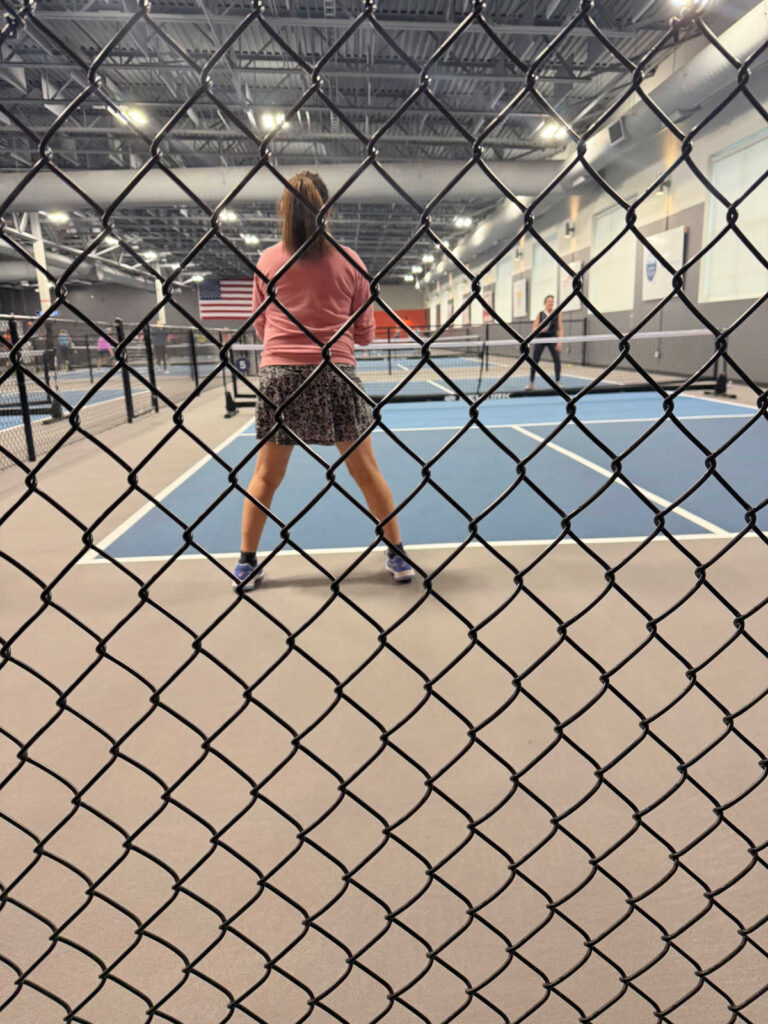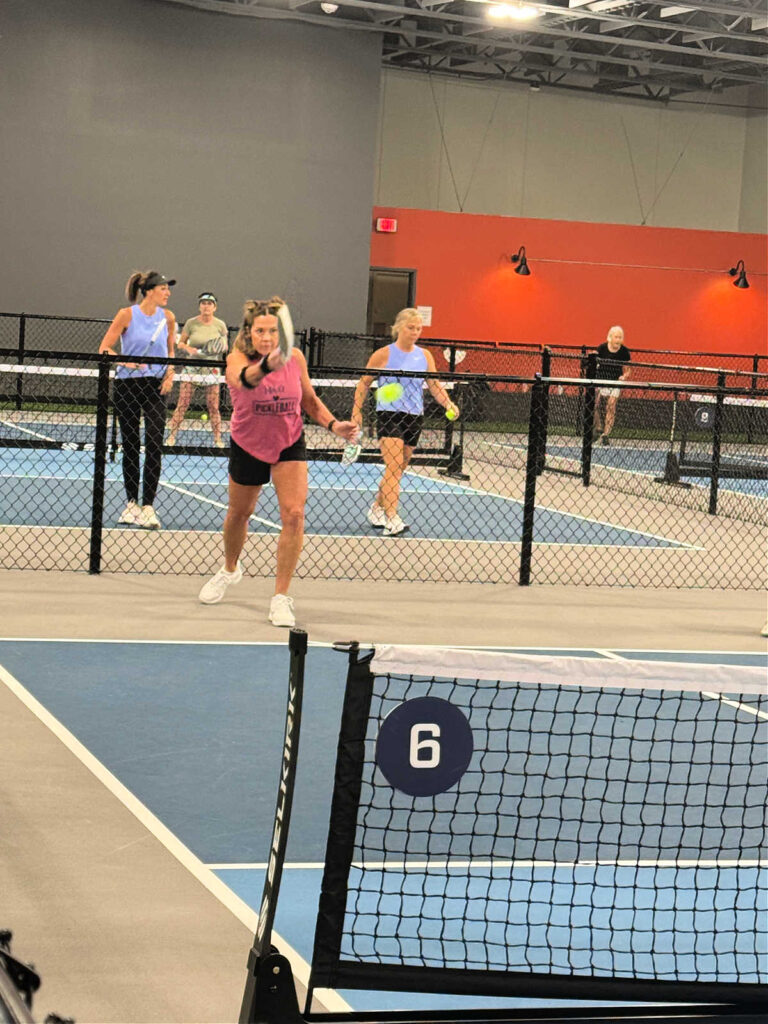Is Pickleball Good for You?
And what is pickleball anyway right? Well we talk all about the fastest growing sport more in detail here. It combines elements of tennis, badminton, and ping-pong, has rapidly grown in popularity over the past decade. Played on a smaller court with a paddle and a perforated plastic ball, it has captured the hearts of people of all ages and fitness levels. But beyond the fun and social aspects, is pickleball actually good for your health? The answer is a resounding “yes!” Here’s an in-depth look at the physical, mental, and social benefits, along with insights into why it has become a staple in fitness communities worldwide.
1. Cardiovascular Fitness
We talk all about how to play pickleball here which involves constant movement—whether it’s dashing to the net, sidestepping for a return, or lunging for a well-placed dink. These movements get your heart pumping, providing a great cardiovascular workout. (affiliate links present)
- Calorie Burn: A typical hour-long game can burn 350-500 calories depending on your intensity level, making it a great way to maintain or lose weight.
- Heart Health: Regular aerobic exercise like this one with consistent movement strengthens the heart and improves circulation, reducing the risk of heart disease, high blood pressure, and stroke.
2. Improves Strength and Coordination
- Lower Body Strength: The quick lateral movements and lunges work your quads, hamstrings, and calves.
- Upper Body Strength: Swinging the paddle and controlling the ball strengthens your arms, shoulders, and core.
- Coordination and Reflexes: The fast pace of the game sharpens hand-eye coordination and reflexes, especially during quick exchanges at the net.
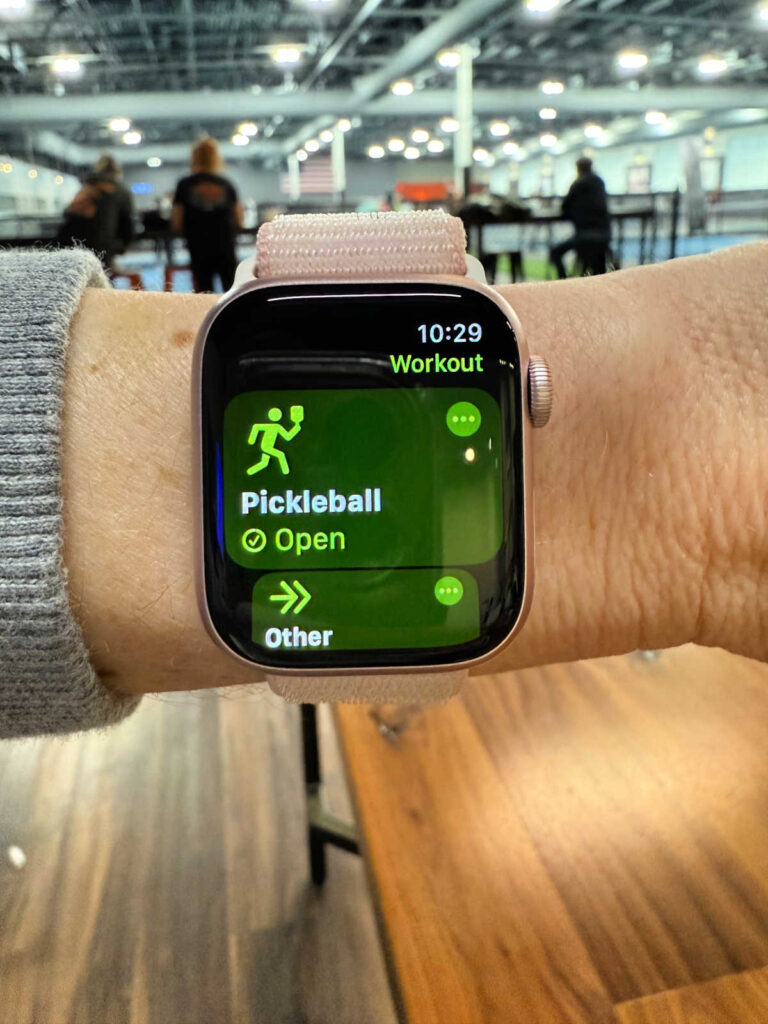
3. It is a Low-Impact Exercise
Unlike high-impact sports like running or basketball this racket sport on a small court is more gentle on the joints, making it an excellent choice for older adults or those recovering from injuries.
- Joint-Friendly: The smaller court size and slower ball speed reduce the strain on knees, hips, and ankles.
- Rehabilitation: Many physical therapists recommend pickleball as part of rehabilitation programs for joint or muscle injuries due to its low-impact nature.
4. Helps your Flexibility and Agility
Racket sports require players to reach, bend, and pivot, enhancing flexibility and agility over time. These movements can improve balance and reduce the risk of falls, particularly in older adults.
Mental Health Benefits of Pickleball
Physical exercise is well-documented for its mental health benefits, and health benefits of pickleball are many. Beyond the physical exertion, the sport offers mental stimulation and emotional well-being in a number of ways. Not only is there an increase in serotonins naturally but being around friends is a huge benefit to life in general.
1. Reduces Stress
Engaging in a fun and social activity like this one helps lower stress levels. Exercise triggers the release of endorphins—your body’s natural feel-good chemicals—which can reduce stress, anxiety, and depression.
2. Has Cognitive Benefits
A mentally engaging sport that requires strategic thinking and quick decision-making, this mental stimulation can help in a number of different ways in your life such as;
- Improves Focus: Concentrating on ball placement, positioning, and strategy keeps your brain sharp.
- Reduces Cognitive Decline: Activities that challenge the brain, like pickleball, have been linked to a reduced risk of dementia and Alzheimer’s disease in older adults.
3. Boosts Your Mood
Playing a sport in general no matter what it is really fosters a sense of accomplishment, especially as skills improve. The social nature of the game also contributes to feelings of connection and belonging, which are essential for mental well-being.
Social Benefits of Pickleball
Anyone who has known health problems like a heart problem, brittle bones or balance issues may need to seek a doctor’s advice before starting this court sport. It is a fast paced game that increases your heart rate, you move quickly and requires dexterity to do. Falls may occur so this should be kept in mind before playing.
For sure! You can burn 400-600 calories per hour and many times the gym slots for a court run for 1.5 hours so you likely will burn about 800 calories in that time. Done on a consistent basis and eating healthy can definitely help you lose weight and stay in shape.
1. Helps you to Make Friends
Whether you’re playing doubles with friends or joining a local league at your gym, the sport is an excellent way to meet new people and foster relationships. This sense of community can:
- Reduce Loneliness: Social interaction is key to mental health, especially for older adults.
- Build Connections Across Generations: It’s simplicity and adaptability make it a favorite for players of all ages, from teenagers to retirees.
2. Inclusive and Accessible for all Ages
The rules are easy-to-learn and smaller court size make it accessible to people of all fitness levels. Whether you’re a seasoned athlete or a beginner, you can jump into a game and enjoy it. This inclusivity fosters an environment where everyone feels welcome.
3. Encourages Teamwork
In doubles play, communication and coordination with your partner are essential. This teamwork fosters collaboration skills and can strengthen personal relationships that may transfer beyond the court itself.
Is Pickleball Right for Everyone?
While pickleball offers numerous benefits, it’s important to consider whether it’s the right fit for your lifestyle and health needs.
Advantages
- Suitable for all ages and fitness levels.
- Requires minimal equipment, making it affordable.
- Can be played indoors or outdoors year-round.
Potential Risks
- Overuse Injuries: Like any physical activity, repetitive motions in pickleball can lead to strains or injuries, particularly in the shoulder, wrist, or knees. It is best to use things like good ankle braces on areas that may already be weak to begin with and ice those that become sore after playing.
- Risk of Falls: Quick movements and sudden stops may increase the risk of falls for those with balance issues.
Tips to Stay Safe
- Warm up before playing to reduce the risk of injury.
- Use proper footwear with good grip and ankle support.
- Listen to your body and rest if you feel discomfort or fatigue.
Why is Pickleball so Popular?
- It is easy to learn: Unlike some sports that require extensive training, most people can pick up pickleball within a few games.
- Games are quick and fun: Games are fast-paced and typically last 15-30 minutes, making it easy to fit into busy schedules.
- It is adaptable so everyone can play: Whether played recreationally or competitively, pickleball can be as relaxed or intense as you want.
Research supports the health benefits;
- A study published in the Journal of Aging and Physical Activity found that older adults who played pickleball three times a week experienced improvements in blood pressure, cholesterol levels, and overall fitness.
- Another study highlighted the sport’s ability to enhance social connectedness and reduce feelings of isolation in players.
Is Pickleball Good for Your Health?
Absolutely! This paddle sport is a fantastic way to stay active, improve your health, burn calories, and enjoy meaningful social connections. Its combination of physical, mental, and emotional benefits makes it one of the best all-around activities for people of all ages and fitness levels. Whether you’re looking for a low-impact exercise, a way to make new friends, or just a fun hobby, pickleball checks all the boxes. So grab a paddle, hit the court, and experience the many benefits this growing sport has to offer!

